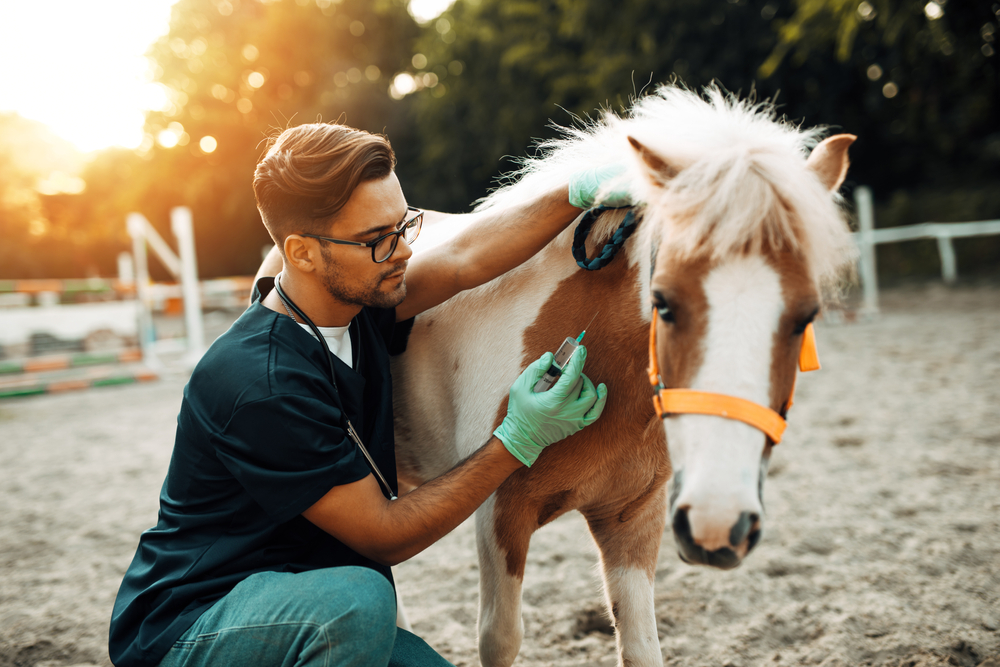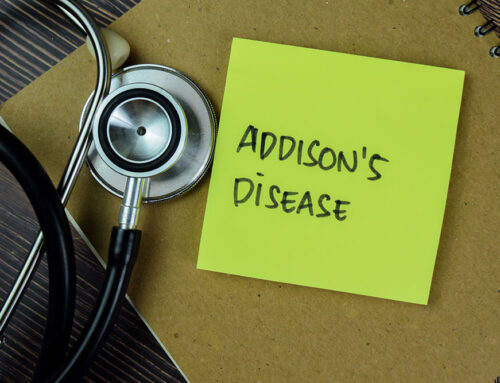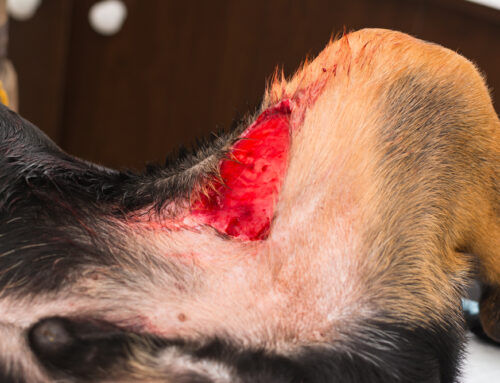Regular vaccinations and deworming are important aspects of your horse’s health care plan to keep them disease and parasite free. Our Alpine Animal Hospital team wants to ensure your equine friend is in optimal health, and we provide recommendations about equine vaccines and parasite control.
Equine vaccines
Vaccines are your horse’s first line of defense against infectious diseases. They introduce benign agents to stimulate the immune system so it is prepared to protect the body against specific diseases. No standard vaccination protocol for horses exists; however, factors such as age, gender, geographic location, use, pregnancy status, and disease risk should be considered for each horse. Our Alpine Animal Hospital team categorizes vaccines as primary or secondary.
Primary vaccines include those to protect against:
- Tetanus toxoid — Tetanus is caused by the spore-forming bacteria Clostridium tetani. These microorganisms are commonly found in the intestine and manure of horses and in the soil. They produce spores that can live in the environment for years and cause infection if they contaminate a wound or a foal’s umbilicus. Signs include muscle stiffness, third eyelid prolapse, “sawhorse” stance, and lockjaw. Severe cases can lead to an inability to eat, recumbency, and potentially death. All horses should be vaccinated once a year, and they should receive a booster if they are injured or undergo surgery.
- Eastern and Western Equine Encephalomyelitis (EEE & WEE) — Viruses that cause EEE and WEE are transmitted by mosquitoes. Horses can’t pass it to other animals. Signs include fever and neurological issues such as depression, lack of coordination, behavioral changes, and seizures. Death rates for horses are about 70% to 90% for EEE and about 50% for WEE. Horses should be vaccinated once a year and more frequently if they travel to areas with warm temperatures.
- Equine Influenza — Equine influenza is a common respiratory disease in horses. The virus is highly contagious and is transmitted from horse to horse through infected respiratory droplets. Signs include fever, cough, nasal discharge, lethargy, and decreased appetite. Treatment involves supportive care, and most horses recover in 10 to 14 days. Horses should be vaccinated every six months or more frequently if they travel or show often.
- Equine Rhinopneumonitis — Equine herpes virus type-1 (EHV-1) and equine herpes virus type-4 (EHV-4) can cause equine respiratory infection, resulting in fever, nasal discharge, and cough. These viruses are transmitted through the air or when a horse contacts an infected horse or objects contaminated with an infected horse’s secretions. EHV-1 can also cause neurological problems. Horses should be vaccinated every six months, or more frequently if they travel or show often. Vaccination does not protect horses against neurologic EHV-1.
- West Nile Virus (WNV) — WNV is a viral disease that causes neurological signs such as lack of coordination, muscle tremors, hypersensitivity to touch and sound, and recumbency. The death rate for affected horses is 33%. Horses should be vaccinated annually.
Secondary vaccines include those for:
- Rabies — Rabies is a viral disease that causes neurological inflammation. The virus is most commonly transmitted to horses through a rabid wild animal’s bite, but these occurrences are uncommon. No treatment is available, and infection is 100% fatal. Horses exposed to wildlife regularly should receive a yearly vaccination.
- Strangles — Strangles is a bacterial disease caused by Streptococcus equi. If your horse lives in a barn where a previous strangles outbreak has occurred or if they travel or show frequently, our team may recommend vaccination.
- Potomac horse fever (PHF) — PHF is a bacterial infection caused by Neorickettsia risticii. Signs include fever, lack of appetite, depression, diarrhea, colic, and laminitis. The vaccine is not 100% effective, but vaccinated horses tend to experience less severe clinical signs.
Equine parasite control

The best way to determine if your horse needs deworming is through regular fecal egg counts. This helps prevent the emergence of resistant parasites. Other steps to control parasites on your farm include:
- Removing and disposing of manure in the pasture at least twice weekly.
- Exposing parasite eggs to the sun by regularly mowing and harrowing your pastures.
- If possible, rotating pastures to allow other livestock to graze them.
- Keeping horses per acre to a minimum to prevent overgrazing and reduce fecal contamination.
- Not feeding horses on the ground.
- Grooming your horse frequently to remove bot eggs from their hair.
Contact our Alpine Animal Hospital team to schedule your horse’s vaccine appointment or to submit a sample for a fecal egg count.







Leave A Comment